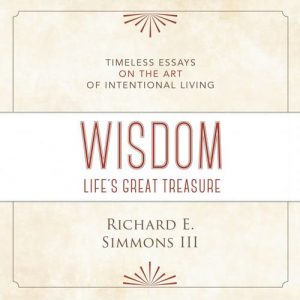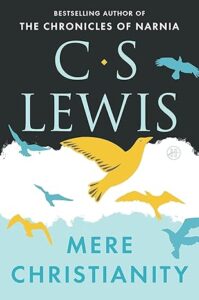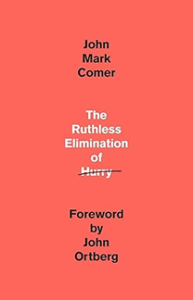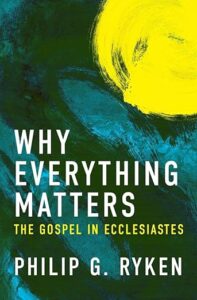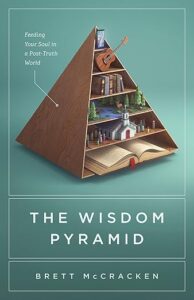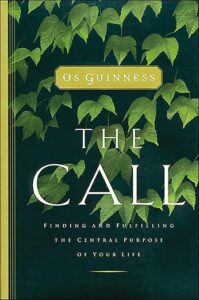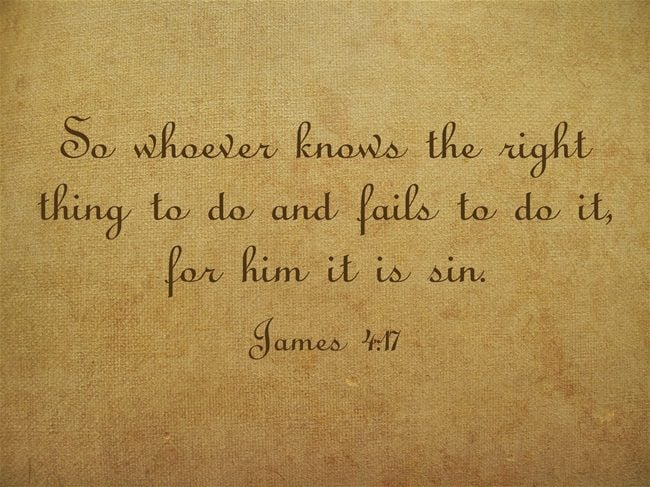5 Books That Shaped My Rule of Life and Quiet Life Pursuit
Later this week, I am headed to the beach to celebrate my wife,
Katie McLain, and her birthday. One of the things I am most excited about, besides being with our family as we celebrate, is the chance to read. Our beach trip earlier in the year is often more packed with activity, but this one in the fall season is full of downtime and togetherness. Each year when we go to
Ocean City, Maryland, for this trip, I look forward to time in a hammock overlooking the inlet and bay, just steps from the boardwalk and beach. It’s one of my favorite places to settle in with a book and let the slower pace of the shore reset me.
This year, most of my reading will be tied to my
doctoral work at
Kairos University, just like it was last year, because I am in a three-year program studying the practical and theological implications of the Lord’s Prayer. I also plan to do some thinking on my goals for my revised
Rule of Life, something I do around this time each year. I have been working on some five year goals and what spiritual disciplines I plan to practice to sutain where I feel God calling me towards. In thinking about this upcoming trip, I was thinking about books that have mattered to me on developing a
Rule of Life. These are some of the books that have shaped me recently in my pursuit of what Paul calls in
1 Thessalonians 4:11-12 a quiet life.
A Quiet Life as a Theme
A few years ago, I began to take this verse seriously:
“Make it your ambition to lead a quiet life: You should mind your own business and work with your hands, just as we told you, so that your daily life may win the respect of outsiders and so that you will not be dependent on anybody.” (1 Thess. 4:11–12, NIV)
This invitation to a quieter, simpler way has become something of a life theme for me. It stands in sharp contrast to the noise, speed, and consumerism of our culture—and even at times our churches. It is a life lived well with the
stillness described in
Psalm 46:10. To lead a quiet life is not about withdrawal, but about presence. It’s about cultivating habits that allow us to live attentively, faithfully, and generously in the world God has placed us.
Living with a Rule of Life
Around the same time, I began living with a “
Rule of Life.” It was a way of staying dedicatd to this new way of living for me, helping me to remember what to say “yes” too, and what to say “no” too. A
Rule of Life is not a set of legalistic rules, but a prayerful framework of habits and practices that help us align our lives with Jesus. It’s like a
trellis that supports a growing vine, it doesn’t cause the growth, but it gives shape and direction to what new way of being and committment we want to model in our lives.
For me, this daily rhythm has become a lifeline. A good
Rule of Life helps sustain the kind of faithfulness Paul describes in
1 Thessalonians 4:11-12, that I feel called to. My
Rule of Life steadies me when life feels chaotic, keeping us grounded in prayer, Scripture, and practices of love. I think it is important to have a
Rule of Life, and it is something I often talk to guests about at
Water Street Mission.
As
Ken Shigematsu writes, “In order to thrive in our life with God we need a spiritual ecosystem that includes deliberate practice…. Having a set of deliberate practices also allows us to build on our strengths and shore up areas of weakness.” That is what a
Rule of Life is all about.
Some Recent Favorites on Having A Rule of Life
Here are a few books that have helped me think more deeply about what it means to lead a quiet life:
- Habits of the Household by Justin Whitmel Earley. We become our habits, and our kids become us. Earley walks through ordinary family routines—waking, mealtime, bedtime, discipline, even screen time—and shows how these small moments are opportunities for spiritual formation. This book has helped me pay attention to how God’s love, care, grace, and presence can shape even the most ordinary parenting practices.
- The Common Rule by Justin Whitmel Earley. If Habits of the Household looks at family life, The Common Rule looks at the broader patterns that shape all of us. Earley argues that habits form us more than we create them. In response to the chaos of modern life, he offers a practical “Rule of Life”—four daily and four weekly habits—that helps us resist the pull of busyness and live with love for God and neighbor.
- God in My Everything by Ken Shigematsu. Spiritual formation isn’t just for monasteries or retreats—it happens in the everyday. Shigematsu helps us discover sustainable rhythms amidst work, family, and church. He shows how we can slow down and experience God in all of life, savoring the presence of Jesus in ways that leave us more thankful and more aware of his provision.
- Praying Like Monks, Living Like Fools by Tyler Staton. Prayer is both mysterious and necessary, yet for many it feels dull or confusing. Staton’s book helped renew my prayer life, reminding me that prayer is a sustaining gift, not a burden. Through practical teaching and powerful stories, he shows how prayer connects us deeply to God’s presence and power in everyday life.
- A Personal Ministry Philosophy: One Key to Effective Leadership by J. Robert Clinton. Though more academic, this paper has shaped how I think about ministry. Clinton highlights the importance of a personal ministry philosophy—a set of values shaped by Scripture, self-awareness, and context—that grounds our leadership. It’s been invaluable for me as I think about ministry not just as a set of tasks, but as a lived philosophy flowing out of a quiet, faithful life.
As I pack books for the hammock and the shore, I am reminded that the quiet life is not about doing less but living more intentionally. I think these books can help you find intentionality, becuase they helped me. A good
Rule of Life is about creating space for God to shape us through habits, rhythms, and practices that align our hearts with his.
How I plan a Rule of Life
I plan my
Rule of Life like a steward and a branch—entrusted with “talents” to invest (
Matt. 25:14–30) and called to abide for lasting fruit (
John 15). Each September I prayerfully sketch a one-year strategic vision with simple, measurable habits, then glance at the next five years out to see where God may be inviting growth. It is about realizing where I need to revise my practices and goals, or set new ones.
I often organize those habits across ten “capitals” (spiritual, relational, physical, intellectual, financial, vocational, sabbath, sexual, possessions, and place), naming the currency I will steward in each—faithfulness, trust, health, learning, generosity, craft, rest, intimacy, simplicity, rootedness. My weekly and daily rhythms follow a trellis of five practices—Silence & Solitude, Simplicity, Sabbath, Slowing, and Seeking (prayer)—so that I remain in the Vine rather than grind in my own strength. I use three questions to keep me honest: Where is the Spirit drawing my attention? What obedience is Jesus inviting now?
Who are the people the Father has placed around me to support it? Then I schedule 1–2 small routines per sphere (with start times and frequencies), review them on Sabbath, and share them with trusted friends for accountability. In short, I aim to invest what God has entrusted and to abide in Christ, so that a quiet, faithful life becomes both my ambition and my witness (
1 Thessalonians 4:11-12). Then I develop a Sunday through Saturday schedule in which I set what activities I will do each day, during what times, so I guard my time well.
An Encouragement to Explore
Living with the right practices is at the core of the invitation of
1 Thessalonians 4:11-12 . And it’s the invitation I keep returning to—whether in the busyness of ministry or the stillness of the beach. I hope you too will explore what a
Rule of Life could mean for you. Even more, I hope you will pick up one of these books, or all of them, and explore this ancient and sacred spiritual practice even deeper. Then I hope you will find a good church community, like we have at
River Corner Church, to help keep you accoutnable to what God is doing in and through your life.






